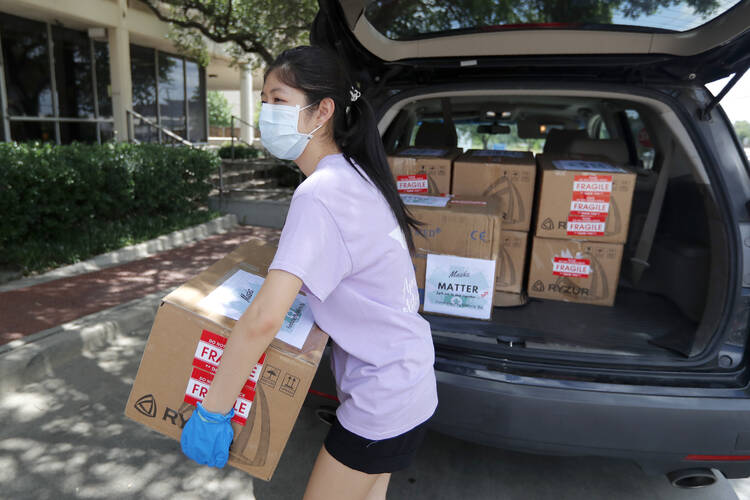VATICAN CITY (AP) — Two authoritative religious bodies on Thursday called on Christians to band together to fight “sins” laid bare or aggravated by the pandemic, including racism and economic injustice.
The Vatican and the World Council of Churches, which is based in Switzerland, issued a joint document noting that the COVID-19 outbreak has drawn attention to "the scandalous gap between the rich and the poor.” The document declared that Christians are compelled to work to heal inequalities, including between men and women.
Christians must “own up to our own complicity and guilt in many systems of oppression” and resist the “temptation” to blame the poor for their poverty, it said.
The inter-religious appeal encourages reflection during the pandemic about the “scourge of religious intolerance, discrimination, racism, economic and ecological injustice and many other sins.”
Preparing the document for the Vatican was the Pontifical Council for Inter-religious Dialogue. The effort reflects Pope Francis' push for Christians to stress their common values in working to combat environmental degradation and to help those on life's margins, such as migrants.
The World Council of Churches brings together churches, denominations and church fellowships in more than 110 countries and territories, representing more than a half-billion Christians.
The document cites the New Testament parable of the Good Samaritan as inspiration to “overcome religious prejudice and cultural biases in relation both to those whom we serve, and to those with whom we serve, as we strive to alleviate suffering and to restore healing and wholeness in a pluralistic world.”
Citing the gap between rich and poor, the appeal said the pandemic has “exacerbated racial prejudices and led to increased violence against those who have for long been considered a threat to the dominant body politic that is structured and sustained” by systems of inequality, discrimination and domination. The document named no country, society or political system.
Now is the “time for discovering new forms of solidarity for rethinking the post-COVID-19 world,” the document said. Religions, it said, can contribute to reawakening and guiding humanity “in building a new social order at the local, regional, national and international levels.”
That vision can draw on “a heritage of moral values common to all human beings.” And, the document's authors contended, such a reawakening would benefit from young people, “whose idealism and energy can be an antidote to the temptation of cynicism, in the endeavor to heal the wounded world of which we are part.”








